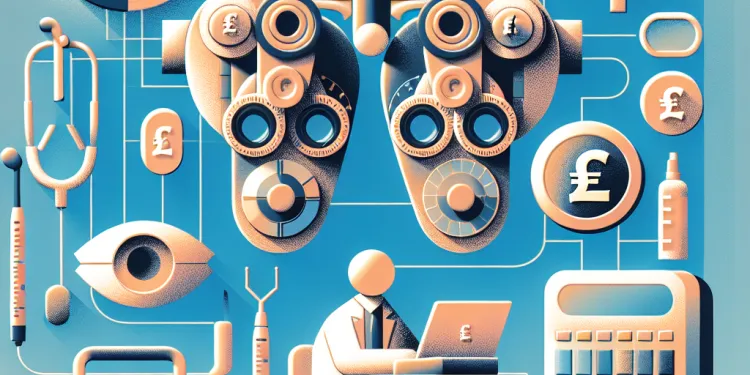
Find Help
More Items From Ergsy search
-
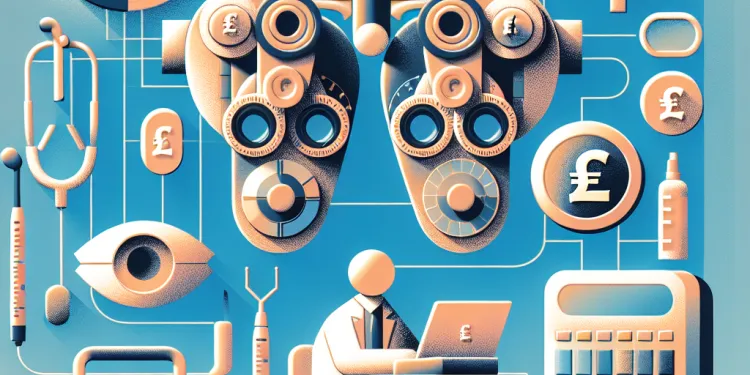
Should I share the results of my self-tests with my eye doctor?
Relevance: 100%
-
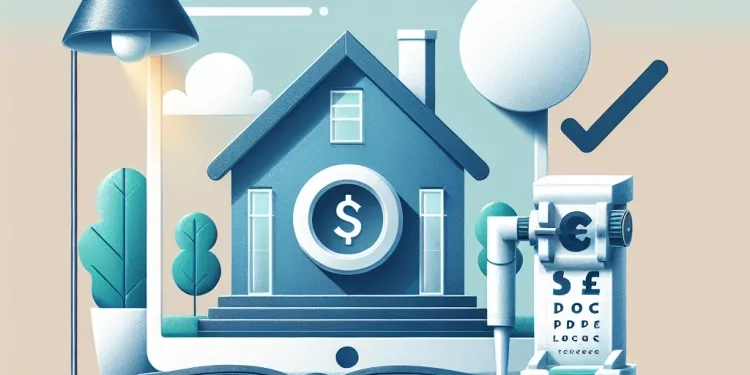
What is self-testing for eye patients?
Relevance: 81%
-

What are the limitations of self-testing for eyes?
Relevance: 79%
-

Are self-tests a substitute for professional eye exams?
Relevance: 75%
-

How often should I self-test my eyes?
Relevance: 74%
-
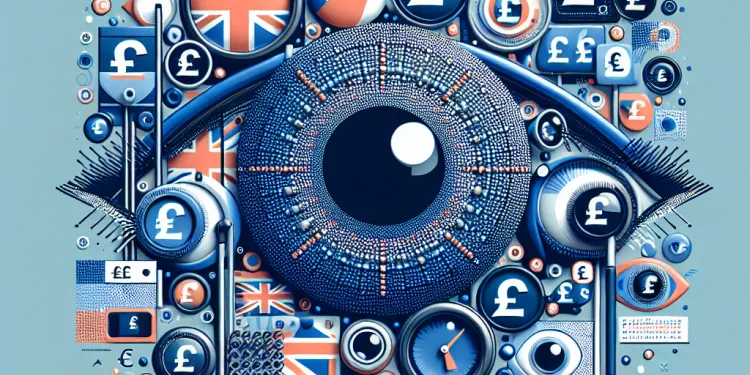
Can self-testing detect all eye conditions?
Relevance: 73%
-
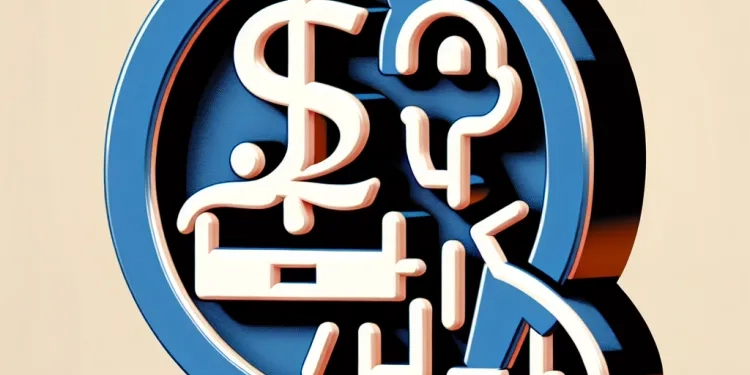
Why would someone need to self-test their eyes?
Relevance: 72%
-

Do I need any special equipment for eye self-testing?
Relevance: 72%
-

What types of self-tests are available for eye patients?
Relevance: 69%
-

Are there any self-tests for eye pressure?
Relevance: 63%
-

Can I use a smartphone for self-testing my eyes?
Relevance: 62%
-
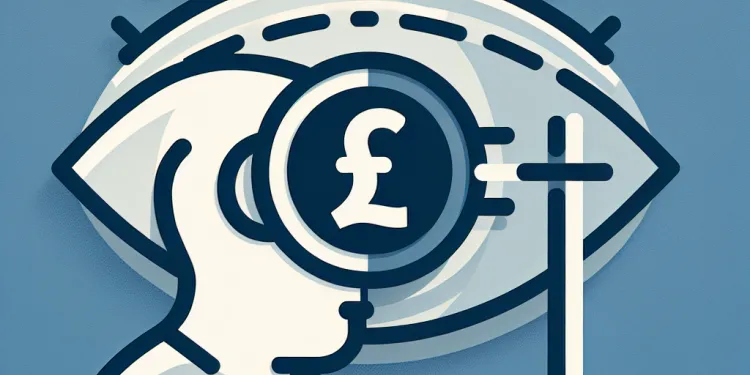
How does self testing for eye patients work?
Relevance: 56%
-
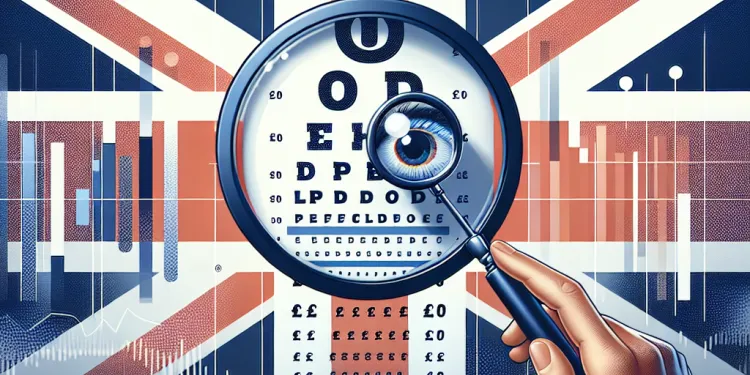
How do I use a vision chart for self-testing?
Relevance: 54%
-
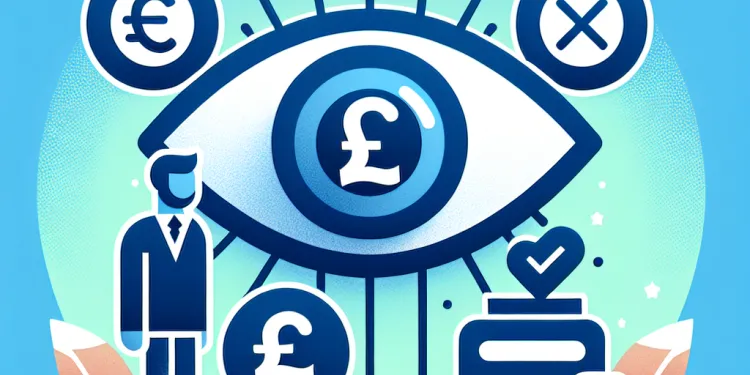
Where can I find reliable self-testing tools for my eyes?
Relevance: 49%
-

Is it possible for self-tests to cause harm?
Relevance: 46%
-
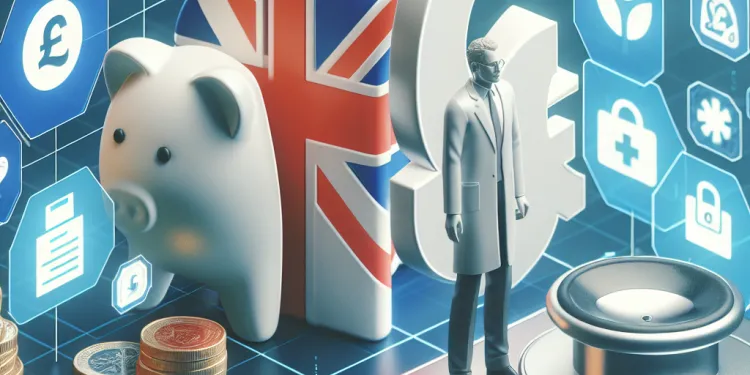
Do insurance plans cover the cost of self-testing tools?
Relevance: 42%
-

What age groups can benefit from self-testing?
Relevance: 42%
-

What should I do if I notice changes during self-testing?
Relevance: 41%
-
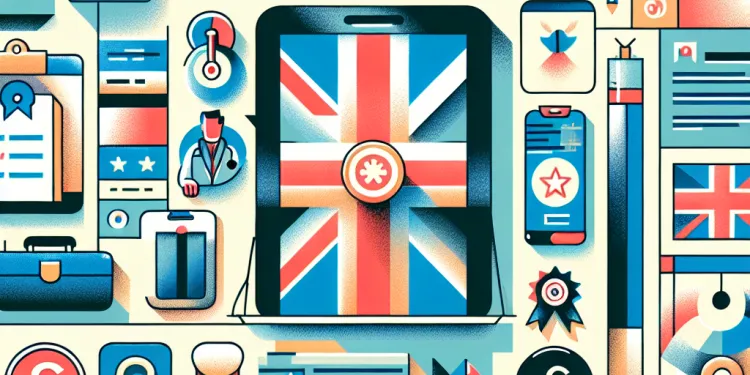
Will I see a doctor?
Relevance: 36%
-
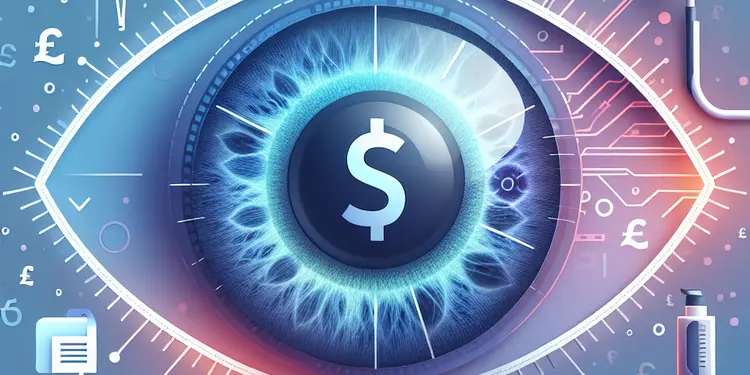
What is hypotony in the eye?
Relevance: 35%
-
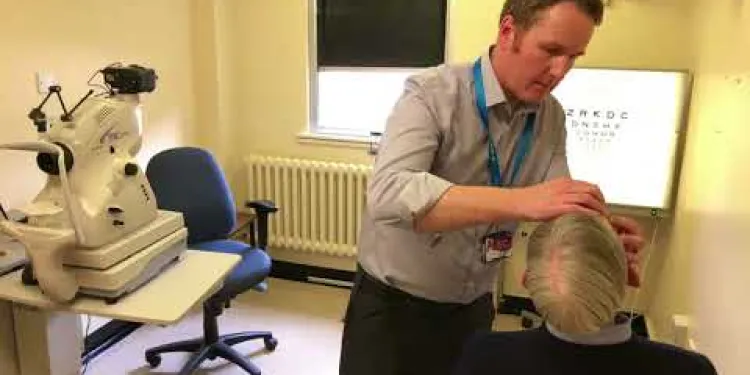
Derbyshire Diabetic Eye Screening - Diabetic Eye Screening
Relevance: 35%
-
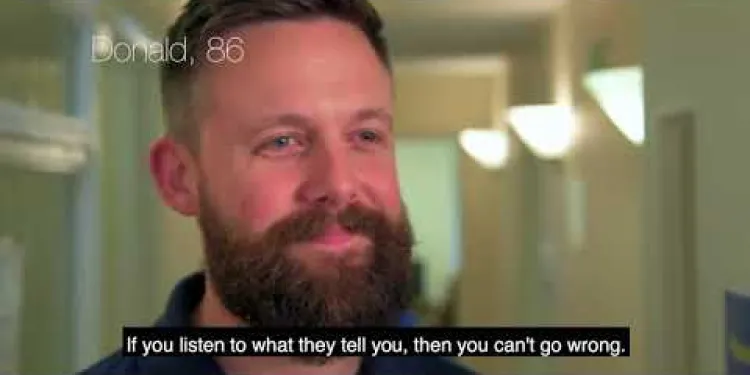
Diabetes Eye Screening
Relevance: 34%
-
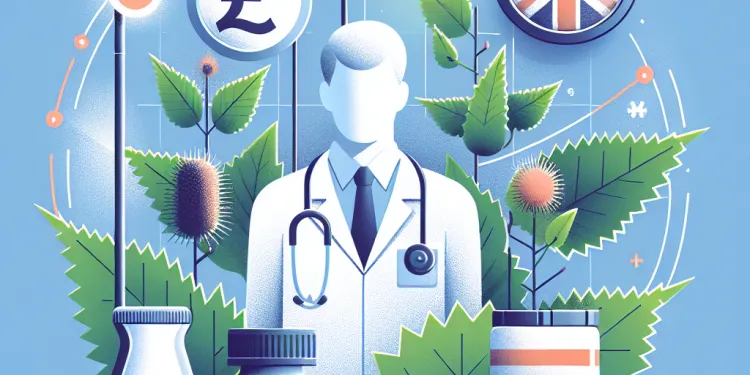
When should I see a doctor for nettle rash?
Relevance: 33%
-
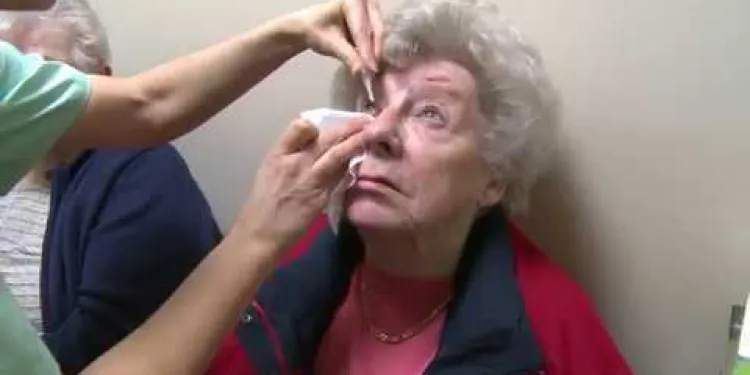
Eye Injections at Royal Bournemouth Hospital
Relevance: 33%
-
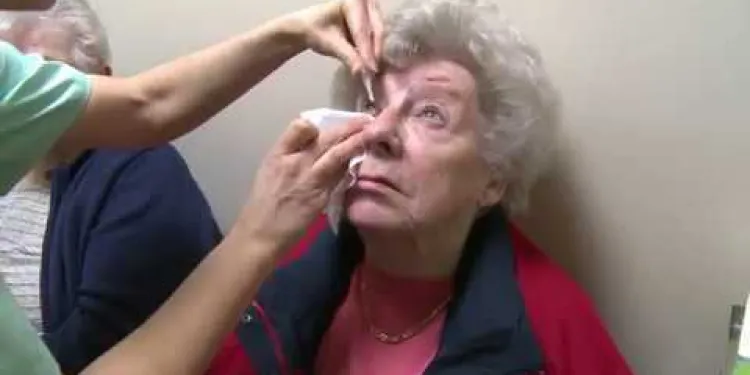
Eye Injections at Royal Bournemouth Hospital
Relevance: 33%
-

Can self-testing help me track my prescription changes?
Relevance: 33%
-
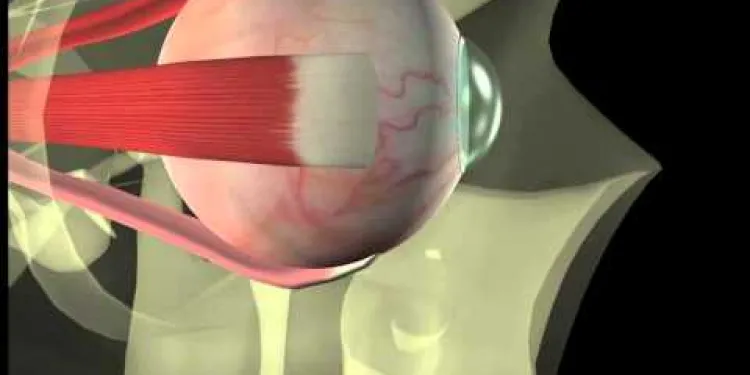
Thyroid eye disease. Squint surgery - The operation
Relevance: 33%
-
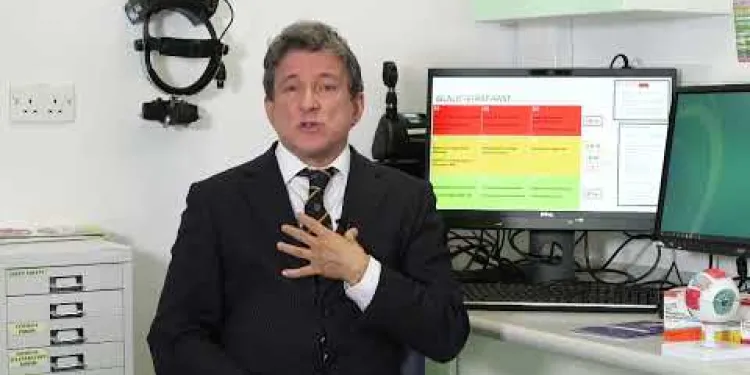
Glaucoma: general side effects of eye drops
Relevance: 32%
-
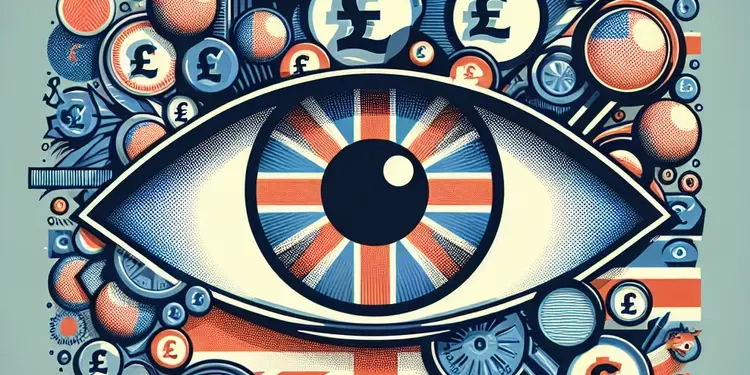
What is the eye condition hypotony?
Relevance: 31%
-
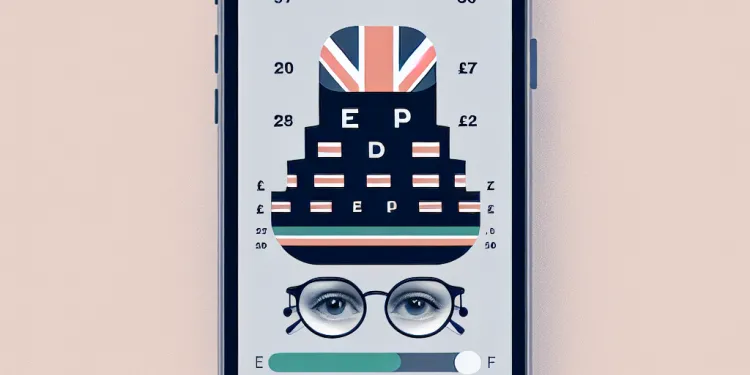
How accurate are app-based eye tests?
Relevance: 31%
-

Can hypotony occur in both eyes?
Relevance: 30%
-
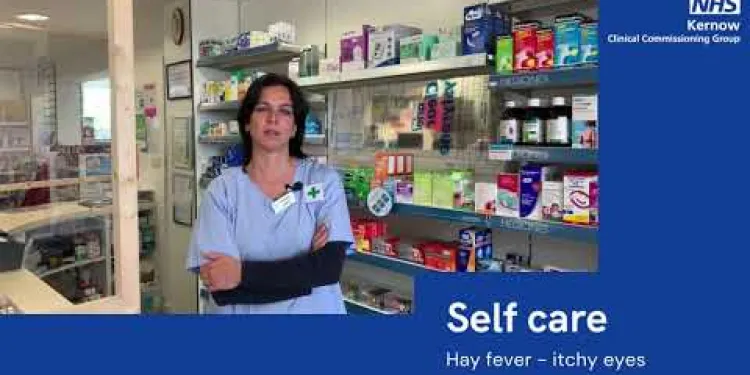
Self care - hay fever itchy eyes
Relevance: 30%
-
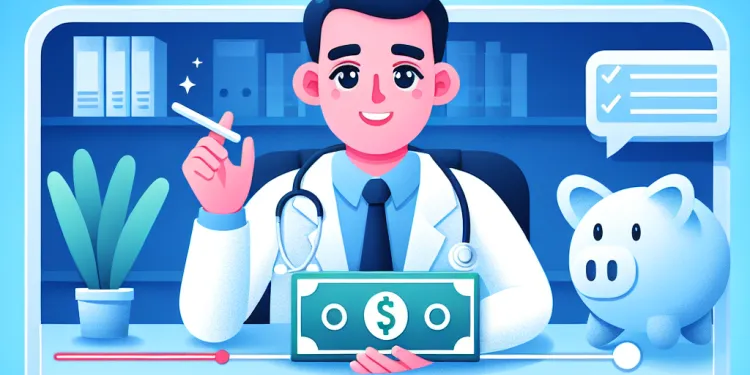
Should I see a doctor for a cold?
Relevance: 29%
-
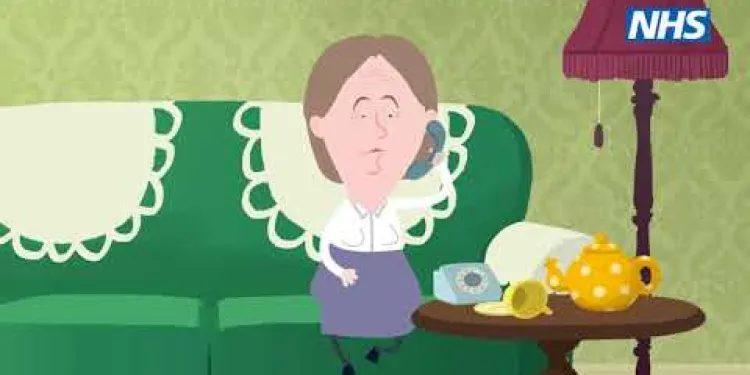
West Midlands LEHN Animated Video on Eye Health
Relevance: 29%
-
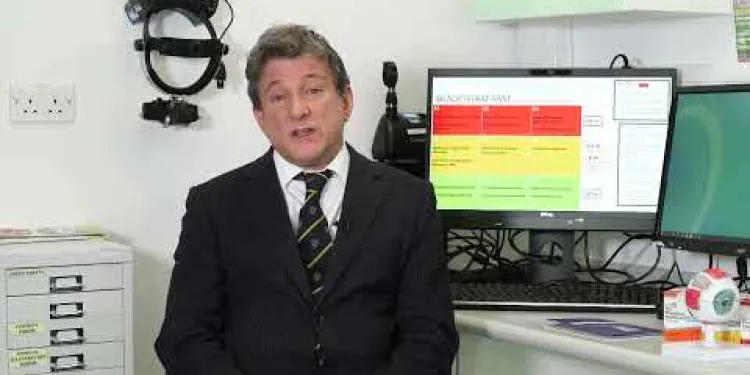
Glaucoma: how often should i take my eye drops?
Relevance: 29%
-
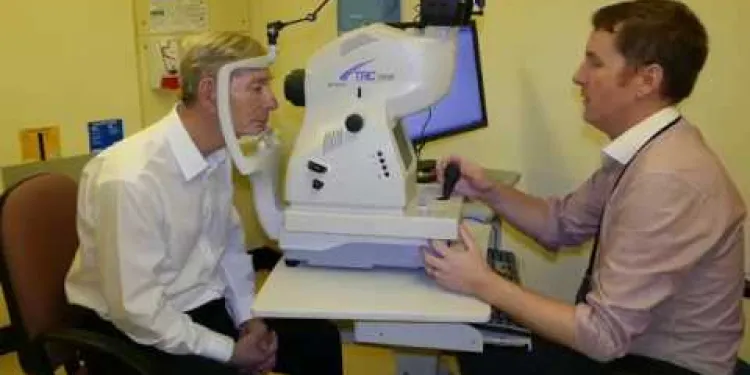
Derbyshire Diabetic Eye Screening - Your Screening Appointment
Relevance: 29%
-
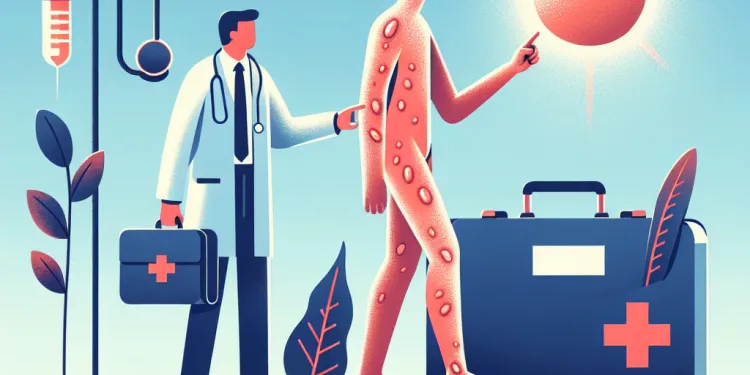
When should I see a doctor for psoriasis?
Relevance: 29%
-
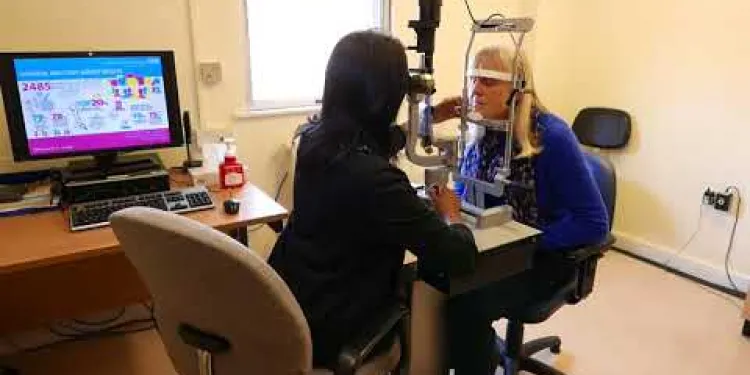
Derbyshire Diabetic Eye Screening - Assessment Clinic Appointment
Relevance: 28%
-
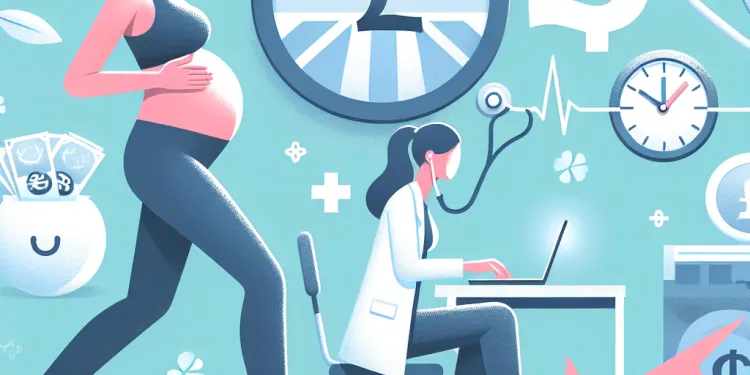
Do I need to consult a doctor before exercising during pregnancy?
Relevance: 27%
-

North Yorkshire Diabetic Eye Screening Programme - A day in the life
Relevance: 27%
Introduction
Visiting your eye doctor is crucial for maintaining good eye health. In the UK, it’s common for individuals to use self-test kits and online tools to assess their vision at home. However, many people are unsure whether they should share these self-test results with their optometrist. In this article, we'll explore the benefits and considerations of discussing self-test findings with your eye care professional.
The Importance of Self-Tests
Self-tests can be a useful way to monitor your eye health in between regular check-ups, particularly for those experiencing new symptoms or changes in their vision. Tools such as online vision tests, Amsler grids for macular health, and smartphone apps can help identify potential issues. However, these tests are not a substitute for a comprehensive examination by an eye care professional. They can provide initial insights that may prompt a medical consultation.
Benefits of Sharing Self-Test Results
There are several benefits to sharing your self-test results with your eye doctor. First, it provides additional context for your eye doctor, helping them better understand any changes or symptoms you may be experiencing. They can assess whether these findings indicate a need for further testing or medical intervention. Moreover, discussing these results can open a dialogue about your concerns, allowing your optometrist to address any worries you might have.
Additionally, sharing results can help track the progression of certain conditions. If you have a chronic condition like glaucoma or age-related macular degeneration, your doctor can compare self-test results over time to decide if adjustments to your treatment plan are needed.
Considerations
While self-tests can be useful, it is essential to understand their limitations. Home tests may not be as accurate as those performed in a clinical setting, and interpreting results without professional guidance can lead to unnecessary anxiety or false reassurance. Hence, it’s vital to approach these tests as preliminary screenings rather than definitive assessments.
Furthermore, not all self-tests are scientifically validated, and results can vary based on numerous factors, including lighting conditions, screen quality, and personal perception. Your optometrist is trained to consider these variables and determine the reliability of the data.
Conclusion
In summary, sharing the results of your self-tests with your eye doctor in the UK can be beneficial as part of an open, communicative relationship regarding your eye health. It allows your optometrist to better understand your condition and provide tailored advice. While these tests are helpful tools for monitoring changes, they should never replace professional eye exams. Always consult your eye doctor if you have concerns about your vision or self-test findings.
Introduction
Visiting your eye doctor is very important. It helps keep your eyes healthy. In the UK, people sometimes use small tests at home to check their eyes. These are called self-tests. You can also find tests online. But when you do these, you might wonder if you should tell your eye doctor. This article will help you understand why sharing these results with your doctor is a good idea.
Why Self-Tests Are Important
Self-tests are tools that help you watch your eye health between doctor visits. They are useful if you notice something different with your sight. For example, there are online tests, grids for checking parts of the eye, and phone apps. These can spot problems early. But remember, they aren’t as complete as a doctor’s check-up. They can help decide if you should see your doctor sooner.
Why Tell Your Doctor About Self-Tests?
Sharing self-test results with your eye doctor has many benefits. It gives your doctor more information. This helps them understand any changes you see. They can decide if you need more tests or help. Also, talking about these results lets you share your worries. Your doctor can then help answer your questions.
Also, sharing results helps follow changes over time. If you have issues like glaucoma (eye pressure) or degeneration (eye aging), your doctor can see if things change. They can then change your treatment if needed.
Things to Think About
Self-tests are helpful but remember they have limits. Home tests may not be as exact as the ones at the doctor's office. Without a doctor’s help, these tests might make you worry too much or too little. So, use them as an early check, not the final answer.
Not all self-tests are always correct. Things like light, screen quality, and even your own view can change the results. Your eye doctor knows how to look at these tests and see what’s right or wrong.
Conclusion
To sum up, telling your eye doctor in the UK about your self-test results is a good idea. It makes sure you and your doctor talk about your eyes and any changes. This helps your doctor give you the best advice. These tests help watch changes but should not replace real doctor visits. Always ask your eye doctor if you worry about your eyes or test results.
Frequently Asked Questions
What are self-tests for eye health?
Self-tests for eye health are assessments that individuals can perform at home to evaluate aspects of their vision such as acuity, color perception, and potential eye abnormalities.
Why should I share my self-test results with my eye doctor?
Sharing self-test results with your eye doctor can provide them with additional information about your vision and eye health, allowing for more informed diagnoses and treatment plans.
Can self-test results impact my treatment plan?
Yes, self-test results can provide your eye doctor with early indicators of changes in your vision, potentially affecting diagnosis and treatment approaches.
What types of self-tests can be shared with my eye doctor?
You can share results from various self-tests, such as visual acuity tests, color blindness checks, or any digital apps designed for vision assessment.
How should I present my self-test results to my eye doctor?
Provide your eye doctor with detailed information on how you conducted the self-tests, including any scores or results, and any concerns you may have.
Will my eye doctor value my self-test results?
While professional diagnostic tools are more reliable, your eye doctor might find your self-test results helpful as additional information about your vision history.
Are self-tests as accurate as professional eye exams?
No, self-tests are not as accurate as professional eye exams but can serve as a preliminary tool to detect changes in your vision.
Is it necessary to share self-test results if I have regular eye exams?
While not necessary, sharing self-test results can help keep your eye doctor informed about any changes in your vision between regular exams.
Can self-test results replace a professional eye exam?
No, self-test results should not replace a professional eye exam which is comprehensive and performed with advanced equipment.
Should I schedule a visit if my self-test results show issues?
Yes, if your self-test results indicate any issues with your vision, it is advisable to schedule a professional eye exam to evaluate these concerns further.
What should I do if my self-test results are fine but I have symptoms?
Regardless of your self-test results, if you are experiencing symptoms like vision changes, discomfort, or pain, you should consult your eye doctor.
How often should I perform self-tests for my eyes?
The frequency depends on individual circumstances but doing them periodically can help detect early changes in vision; discuss with your doctor how often they recommend.
Are self-test apps reliable for tracking vision health?
Some apps are designed to provide a basic check of your vision, but they should not be solely relied upon for diagnosis or treatment decisions.
What are the limitations of self-tests for vision?
Self-tests may not accurately diagnose complex eye conditions and can be influenced by factors such as lighting and screen size.
Will sharing self-test results affect my medical record?
Doctors may note your self-test results in your medical record as part of a comprehensive view of your eye health.
Can self-test results help in early detection of eye diseases?
Self-tests might help identify potential issues early, but they cannot definitively diagnose eye diseases—professional evaluation is necessary.
What should I do if I don't understand my self-test results?
If you are confused about your self-test results, discuss them with your eye doctor who can provide clarification and further advice.
Are there any risks to conducting self-tests for eye health?
Generally, self-tests pose no risks as long as they are conducted properly, but misinterpretation could delay necessary professional care.
Is it beneficial to track changes in self-test results over time?
Yes, monitoring changes over time can be useful in recognizing trends or new symptoms, discussing them with your eye doctor is important.
What are common signs that suggest the need for a professional eye exam?
Common signs include blurry vision, difficulty in seeing at night, frequent headaches, eye strain, or any sudden changes in vision.
What are eye health self-tests?
Eye health self-tests are simple checks you can do at home. They help see if your eyes are healthy.
These tests can show if you need to visit an eye doctor.
Some common self-tests are:
- Vision Tests: Can you see letters clearly on a chart?
- Color Tests: Can you tell different colors apart?
- Near Vision Tests: Can you see things up close?
You can also use tools like a phone app or a computer for these tests. Always ask an adult to help if you need it.
If a test shows a problem, talk to an eye doctor for more help. They can check your eyes properly.
Eye tests you can do yourself are checks you can do at home. They help you see how well your eyes work. You can check how clearly you see, if you see colors correctly, and if there are any problems with your eyes.
Why tell my eye doctor my test results?
It is good to tell your eye doctor what your test showed. They can help you see better.
Here is why:
- They understand eyes well.
- They can tell you what to do next.
- They may give you glasses or eye drops to help.
Things that might help:
- Bring a friend or family member to your appointment.
- Write down your questions before you go.
- Use pictures to show how your eyes feel.
If you tell your eye doctor the results of your eye tests at home, it can help them understand your vision better. This way, they can make better decisions about how to help your eyes.
Can self-test results change my treatment plan?
If you do a test by yourself and it shows something important, tell your doctor. The doctor may change how they help you.
Here are some things you can do to make it easier:
- Use a planner or calendar to track your tests and results.
- Ask someone you trust to help you understand the test results.
- Write down any questions you have and take them to your doctor.
- Use simple words to explain how you feel and what you want to know.
Yes, when you check your eyes at home, it can help your eye doctor see early signs that your eyes are changing. This can help them know how to help your eyes and decide what treatment you might need.
What eye tests can I show my eye doctor?
You can do some simple eye tests at home. Then, you can tell your eye doctor about them.
Here are some eye tests you can try:
- Reading Test: Try reading a book or sign from far away. Can you see the words clearly?
- Color Test: Look at different colors. Can you see them all?
- Eye Movement Test: Follow your finger with your eyes. Do they move smoothly?
Doing these tests can help your eye doctor understand your eyes better. You can use tools like:
- Magnifying Glass: This can help you see small words or details.
- Bright Light: A good light can make it easier to see things.
Tell your eye doctor how you did with these tests!
You can share results from different eye tests. These tests can check how well you see, if you can see colors, or if you use any apps to check your eyes.
How can I show my eye test results to my eye doctor?
Tell your eye doctor how you did the tests on your own eyes. Share what scores or results you got. Tell the doctor if you are worried about anything.
Will my eye doctor care about my test results?
Your eye doctor might find your test results helpful. They may want to know what you have noticed about your eyes.
It's a good idea to tell your eye doctor everything. Tell them how your eyes feel and if you have any trouble seeing.
You could also ask someone to help you talk with the doctor if you find it hard. They can help explain what you want to say.
Doctors have special tools to check your eyes. These tools are very good. But if you try a little eye test at home, it can still help your eye doctor. It gives them extra information about how your eyes have been working.
Are home eye tests as good as visiting an eye doctor?
No, home eye tests are not as good as seeing an eye doctor. But they can help you see if your eyes have changed.
Do I need to tell my eye doctor the results of my home eye tests if I see them often?
You don't have to share your test results, but it can help your eye doctor. This way, they know if your eyes are changing between your check-ups.
Can checking my eyes at home be as good as visiting an eye doctor?
No, a self-test cannot take the place of a professional eye test. A real eye test is done by a professional who uses special tools to check your eyes thoroughly.
What should I do if my self-test shows a problem?
If your eye test shows a problem, it's a good idea to see an eye doctor. They can check your eyes and help you.
What do I do if my test is okay but I still feel sick?
If your eyes hurt or you can't see clearly, you should talk to an eye doctor, no matter what your test says.
How often should I test my eyes myself?
You can check your eyes at home to see if they are okay.
Try to do this every now and then, like every month.
If you use glasses, put them on when you check your eyes.
If your eyes feel funny or you can't see well, tell a grown-up or go to a doctor.
You can use tools like a big letter chart to help check your vision.
How often you need to do this depends on you. Doing it now and then can help you find changes in your eyesight early. Talk to your doctor about how often you should do this.
Can apps help check if your eyes are healthy?
Some apps can help you check your eyes. But you should not use them to find or treat problems on your own.
Problems with Eye Tests You Do Yourself
Self-checks might not tell if you have tricky eye problems. Things like the light in the room and how big your screen is can change the results.
Will sharing my test results change my health records?
Doctors might write down your test results in your medical record. This helps them see the full picture of how healthy your eyes are.
Can testing yourself help find eye problems early?
Testing your eyes at home can help. Simple tests might show signs of eye problems early.
Finding problems early can be a big help. It can make treatment easier.
You can try using online tools or apps to test your eyes.
If you think something is wrong, tell an adult or go see a doctor.
Self-tests can help find signs of problems early. But you still need a doctor to check your eyes to know for sure if something is wrong.
What if I do not understand my test results?
If you do not understand your test results, talk to your eye doctor. They can help explain what the results mean and tell you what to do next.
Are there any dangers in doing eye tests yourself?
Self-tests are safe if you do them the right way. But if you don't understand the results, it could mean you don't get help from a doctor when you need it.
Is it helpful to keep track of self-test results over time?
Keeping track of your self-test results can be good. You can see if things are getting better or worse.
Here are some tips to help you:
- Write down your results every time you do a test.
- Use a calendar to mark the days you do tests.
- Ask someone to help if you find it hard to remember to keep track.
By doing this, you can see patterns and changes. This can help you understand your health better.
Yes, watching changes over time can help you see patterns or new symptoms. It is important to talk about these with your eye doctor.
What are signs that you need to see an eye doctor?
Here are some signs that mean you should go to the eye doctor:
- You cannot see things clearly.
- Your eyes hurt a lot.
- You get headaches often.
- Your eyes are red or always watery.
Ask an adult for help if you notice these signs.
Here are signs that something might be wrong with your eyes:
- Your vision looks blurry, like you're looking through fog.
- It's hard to see when it gets dark outside.
- Your head hurts a lot, like you have headaches often.
- Your eyes feel tired and hurt.
- If your eyesight suddenly changes, tell someone.
Tools that can help:
- Ask an adult to help you see an eye doctor.
- Use glasses or a magnifying glass if you need help seeing things clearly.
Useful Links
This website offers general information and is not a substitute for professional advice.
Always seek guidance from qualified professionals.
If you have any medical concerns or need urgent help, contact a healthcare professional or emergency services immediately.
- Ergsy carfully checks the information in the videos we provide here.
- Videos shown by Youtube after a video has completed, have NOT been reviewed by ERGSY.
- To view, click the arrow in centre of video.
- Most of the videos you find here will have subtitles and/or closed captions available.
- You may need to turn these on, and choose your preferred language.
- Go to the video you'd like to watch.
- If closed captions (CC) are available, settings will be visible on the bottom right of the video player.
- To turn on Captions, click settings .
- To turn off Captions, click settings again.
More Items From Ergsy search
-

Should I share the results of my self-tests with my eye doctor?
Relevance: 100%
-

What is self-testing for eye patients?
Relevance: 81%
-

What are the limitations of self-testing for eyes?
Relevance: 79%
-

Are self-tests a substitute for professional eye exams?
Relevance: 75%
-

How often should I self-test my eyes?
Relevance: 74%
-

Can self-testing detect all eye conditions?
Relevance: 73%
-

Why would someone need to self-test their eyes?
Relevance: 72%
-

Do I need any special equipment for eye self-testing?
Relevance: 72%
-

What types of self-tests are available for eye patients?
Relevance: 69%
-

Are there any self-tests for eye pressure?
Relevance: 63%
-

Can I use a smartphone for self-testing my eyes?
Relevance: 62%
-

How does self testing for eye patients work?
Relevance: 56%
-

How do I use a vision chart for self-testing?
Relevance: 54%
-

Where can I find reliable self-testing tools for my eyes?
Relevance: 49%
-

Is it possible for self-tests to cause harm?
Relevance: 46%
-

Do insurance plans cover the cost of self-testing tools?
Relevance: 42%
-

What age groups can benefit from self-testing?
Relevance: 42%
-

What should I do if I notice changes during self-testing?
Relevance: 41%
-

Will I see a doctor?
Relevance: 36%
-

What is hypotony in the eye?
Relevance: 35%
-

Derbyshire Diabetic Eye Screening - Diabetic Eye Screening
Relevance: 35%
-

Diabetes Eye Screening
Relevance: 34%
-

When should I see a doctor for nettle rash?
Relevance: 33%
-

Eye Injections at Royal Bournemouth Hospital
Relevance: 33%
-

Eye Injections at Royal Bournemouth Hospital
Relevance: 33%
-

Can self-testing help me track my prescription changes?
Relevance: 33%
-

Thyroid eye disease. Squint surgery - The operation
Relevance: 33%
-

Glaucoma: general side effects of eye drops
Relevance: 32%
-

What is the eye condition hypotony?
Relevance: 31%
-

How accurate are app-based eye tests?
Relevance: 31%
-

Can hypotony occur in both eyes?
Relevance: 30%
-

Self care - hay fever itchy eyes
Relevance: 30%
-

Should I see a doctor for a cold?
Relevance: 29%
-

West Midlands LEHN Animated Video on Eye Health
Relevance: 29%
-

Glaucoma: how often should i take my eye drops?
Relevance: 29%
-

Derbyshire Diabetic Eye Screening - Your Screening Appointment
Relevance: 29%
-

When should I see a doctor for psoriasis?
Relevance: 29%
-

Derbyshire Diabetic Eye Screening - Assessment Clinic Appointment
Relevance: 28%
-

Do I need to consult a doctor before exercising during pregnancy?
Relevance: 27%
-

North Yorkshire Diabetic Eye Screening Programme - A day in the life
Relevance: 27%


